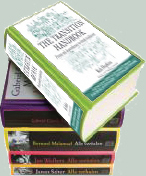
'The debate about sustainable energy has to be a debate about people'
‘The debate about sustainable energy is a debate about technology and politics. However, it ought to be a debate about people, because consumers hold the key to sustainable energy. Year after year, without really thinking perhaps, they pay billions for energy that is not sustainable. Maybe it is possible for us to change human behavior into more sustainable behavior.'


Mr. Loorbach, I clearly agree with you that human behaviour is the most essential part of reaching a sustainable society. In research that was performed by the Dutch company EIXs. On nearly sixty primairy schools there was demonstrated on nearly sixty schools that differences in energy consumption between (benchmarked) schools is impressive. This while the targets of these schools are quite simple and schooluse overall is quite clear, start at 8:30 and closing time around 15:00:00:00:00:00. Nearly half of the possible savings, compared with the best perfoming school (55,8% savings of the total electricity use, could be saved at night and weekend-time, by switching of electrical systems that are switched on and of no use to any person.
In a next phase of this research we investigate in how many weeks the pupils and teachers can save the 26% of total electricity use, by switching off systems at night. Next we will start with batteling the so called peakuse. In this research with pupils at schools it is crucial that the kids can on-line follow the results of their actions, using smart energy meters and an on-line school energybenchmark. Giving the kids a competitive base for their schoolresults will clearly contribute to the total result. With these "wise" conscious children, coming home with their clear and measurable results, this will directly result in influencing their parents and their parents companies in the right sustainable direction. Contributing to this study are: the Ministry of Economiacal Affairs, Eneco/Stedin, Philips Lighting, Plugwise, Oracle/SUN, Province of South-Holland, Boards of Haagse Scholen and Librijn.
Transitions to Sustainable Development
This recent study, published by Routledge, presents and combines three perspectives on transitions to a sustainable society: complexity theory, inn
go to book page >

